From Czechia to Concord: Pastor František Janák Finds a Calling at Calvary Lutheran
Janák hopes to build a more diverse, welcoming congregation — and to open Calvary’s doors to the wider community.
When preparing his sermons, František Janák Jr., pastor at Calvary Lutheran Church in Concord, likes to “live with” the assigned Scripture for several days, allowing the words to simmer in his mind before ever putting pen to paper.
He also seeks to connect the ancient texts to the present day — drawing clear lines between the Gospel and what’s happening in the world beyond the church walls.
“I believe that preaching needs to be relevant,” Janák said. “It cannot exist in a vacuum.”
During the Holy Trinity service this past Sunday, Janák did just that. He connected the readings to urgent needs in the local community — particularly those affecting the most vulnerable.
He spoke about school meal debt in Cabarrus County Schools, a rise in housing assistance applications through Cooperative Christian Ministry, and an increase in the number of students experiencing homelessness.
“People are still truly hurting out there, and the loving fellowship of the Trinity calls on us to pay attention as well,” Janák told his congregation.
He added: “We are called upon to love ourselves and each other within our community, and to have so much of it that the love overflows into the neighborhoods and the whole world, naturally and freely.”
Since joining Calvary as the new pastor in April, Janák has challenged the church to become more inclusive and reflective of the community around it.
“I believe the church should be porous,” Janák, 39, told The Cabarrus Compass. “Which means that things can enter in, and things can enter out.”
His emphasis on social justice resonated with Calvary’s call committee, which was tasked with selecting the church’s next pastor.
“It was clear from the sermons we had heard that he wasn’t afraid to challenge people — to call out wrongdoing and to call out social injustice,” said David Black, chair of the committee. “And that’s exactly what we wanted.”
Black appreciates how Janák consistently ties Scripture to present-day realities.
“If all you do is talk about the Bible, then that’s a history lesson,” Black said. “Preaching is relating the Bible and the teachings of Christ to current events and how we lead our lives.”
Discovering Faith, Lutheranism — and Love
Originally from Czechia (also known as the Czech Republic) Janák grew up in a family that wasn’t particularly religious. His mother was an English teacher, and his father a well-known glass artist.
As a teenager, Janák traveled across Europe and even spent a year in Japan while his father taught at an art school. That experience, he said, profoundly shaped him.
“It kind of takes you out of the bubble of your culture,” he said. “You have to adapt to something new.”
The Czech Republic is widely regarded as one of the most atheistic countries in the world. Janák explained that much of this stems from the country’s 20th-century history: the trauma of Nazi occupation during World War II followed by decades of communist rule.
“Religion was often coupled with oppression,” he said.
Though not raised in a religious household, Janák was always intrigued by the role of faith in making sense of life’s larger questions.
That interest grew during his time at Charles University in Prague — the country’s oldest and most prestigious university — where he studied English and the social sciences. He gravitated toward ethics and applied philosophy, finding particular inspiration in the writings of German philosopher Martin Heidegger.
According to Janák, Heidegger’s work helped to better understand human existence — not as detached, thinking minds, but as beings already embedded in a world of meaning, interaction, and care.
“Your environment is part of your being,” Janák said.
As he explored those ideas, his curiosity about religion grew. Janák transferred to a different school within Charles University to study philosophy and religion. His coursework included the history of Christianity as well as studies in other world religions such as Judaism and Islam.
He also encountered the videos of public theologian Brian McLaren, a leading figure in the emerging church movement, a loosely connected, postmodern Christian reform movement that began in the late 1990s and early 2000s
As Janák considered the key tenets of the Christian faith, such as feeding the hungry and clothing the naked, he began expanding his worldview.
Describing himself as a “professional searcher of knowledge,” Janák left Charles University in 2012 to pursue a degree in Mission Work with Youth and Children at the University of Žilina in neighboring Slovakia.
While commuting between the Czech Republic and Slovakia, Janák — who at the time aspired to become a missionary — was active in a Pentecostal church. But it was in Slovakia that he was first meaningfully introduced to Lutheranism, as his academic program was affiliated with a local Lutheran congregation.
He’d already been intrigued by the faith, having met a Lutheran woman during his earlier university years in Prague.
“I already kind of had a proclivity that I liked a lot of the things (associated with Lutheranism) he said. “But living in Slovakia really cemented that.”
In 2014, while doing an internship at the International Protestant Church of Zurich (IPCZ) — an English-speaking, interdenominational Christian congregation in Switzerland — Janák’s calling became clear.
It was during a young adult retreat in Davos that he felt God pulling him toward pastoral ministry.
“I really felt a strong call there,” he said, particularly in working with young people.
It was also in Zurich that he met Christine, a young American dancer. Their connection, he said, was immediate and meaningful.
“We felt like we were both travelers in a world where a lot of our family and a lot of our friends simply stayed static,” Janák said.
Even after Christine returned to traveling through Europe with her dance company and Janák returned to Slovakia, the two stayed connected. After about six months of dating, Janák proposed to her during a Thanksgiving trip to the Netherlands.
They eventually decided to move to the United States.
Janák applied for a green card while finishing his studies, and the couple moved to Colorado in October 2015. Soon after, they got married and he began the process of applying for candidacy to become a Lutheran pastor.
Finding his way to Concord
Janák chose to join the Evangelical Lutheran Church in America (ELCA), one of the more inclusive branches of Lutheranism, because he believed that anyone — regardless of gender identity or sexual orientation — should have the opportunity to become a pastor.
“I believe that church should be a welcoming place and a loving place,” he said.
From September 2016 to May 2021, he attended the Lutheran School of Theology at Chicago, a progressive seminary known for its emphasis on justice, inclusion, and interfaith dialogue. After completing his studies, Janák began the process of matching with his first pastoral call.
The process took several months, made more complicated by lingering challenges from the COVID-19 pandemic. After considering a few different options, Janák ultimately accepted a call to serve as pastor at St. Stephen Lutheran Church in South Plainfield, New Jersey in 2022.
The congregation was relatively small, with an average weekly attendance of about 40 people — but it was notably diverse, which Janák saw as a meaningful strength and was a key reason why he accepted the call.
Roughly 30 percent of the congregation was nonwhite, Janák said, a significant contrast to national ELCA demographics, where more than 90 percent of members are white.
Janák and Christine enjoyed their time in the area, taking several trips to nearby New York City. But ultimately, he felt it wasn’t the right environment for his personal and spiritual growth.
So, last summer, Janák re-entered the call process in search of his next pastoral assignment. He explored opportunities across the country but ultimately found the right fit at Calvary Lutheran Church.
“I think, from the very beginning, we had a very good relationship,” Janák said of his conversations with the call committee. “They were curious about me personally — not just what I could do.”
He participated in two Zoom interviews with Calvary’s call committee, which was tasked with selecting the congregation’s next pastor. After those conversations, the committee invited him for an informal in-person visit.
At the end of the first Zoom call, Janák smiled and held up his hands to show his fingers crossed — a simple gesture that spoke volumes about his eagerness and sincerity.
“You could tell that he was interested and that he was hungry for the call,” said David Black, the committee’s chair.
As part of the process, Janák was invited to preach at a Lutheran church in Belmont, giving the committee a chance to observe his preaching style and pastoral presence firsthand, a crucial part of evaluating any potential pastor.
Janák made a lasting impression — so much so that on his way to the airport, the call committee phoned to let him know he was their top choice. The congregation later approved the selection, following a successful meet-and-greet.
Shortly after, in early 2025, Janák, Christine, and their young daughter Lily moved to Concord to begin the next chapter of their lives. He began his position as pastor in late April.
Guiding Calvary Forward
Janák quickly noticed several stark differences between Calvary and his former church in New Jersey. Calvary had a larger building, a bigger staff, and a more sizable congregation.
He sensed a different energy among the members. “People are definitely more relaxed than in New Jersey,” he said.
Janák also appreciates the pace of life in the region — traveling to Charlotte is far less stressful than navigating New York City.
He’s open about his identity as a progressive pastor, a fact the call committee knew when they selected him.
“But just because I’m progressive doesn’t mean I’m not trying to be sensitive and take a balanced approach,” he said.
Ultimately, Janák believes the church was looking for someone who could help them grow.
“They wanted somebody who can challenge them in a positive way,” he said. “And that’s kind of what I’m trying to do.”
David Black hopes that Janák’s relative youth will help draw more young people to the church.
“The church, in order to exist, has to relate to younger people,” Black said.
Looking ahead, Janák said Calvary was already doing meaningful work before he arrived.
But as “the church on the hill,” he envisions it becoming even more open — not only by cultivating a more diverse congregation that reflects the surrounding community, but also by welcoming local groups to make use of the building as a shared community space.
“We’re very pleased and I think the members are also pleased,” Black said of Janák’s first few months. “So far, so good.”
Drawing once more from the philosopher Martin Heidegger — a through line in his own spiritual and intellectual journey — Janák offered a question that continues to guide his ministry.
“How can we expand the being of the church?”




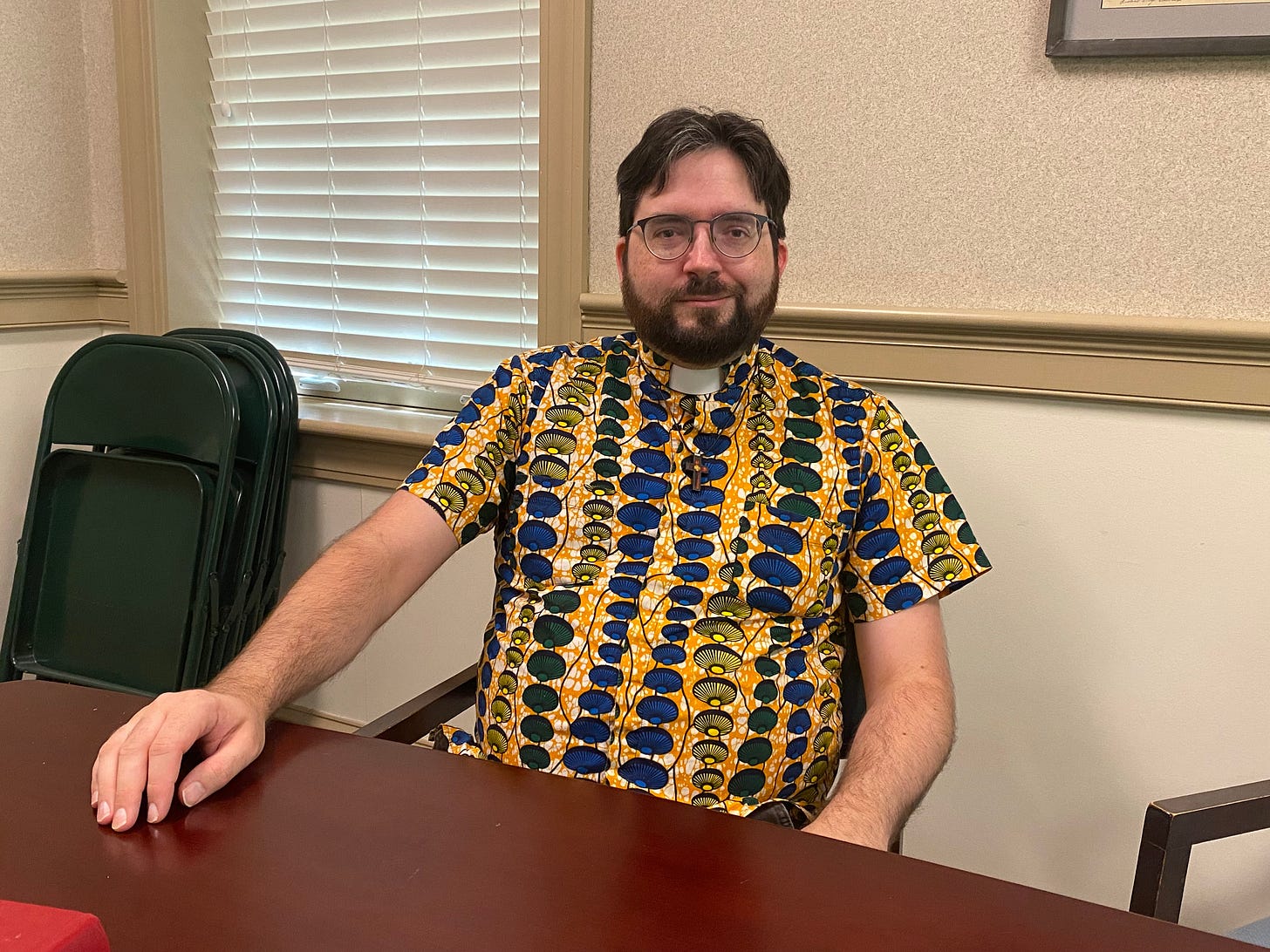
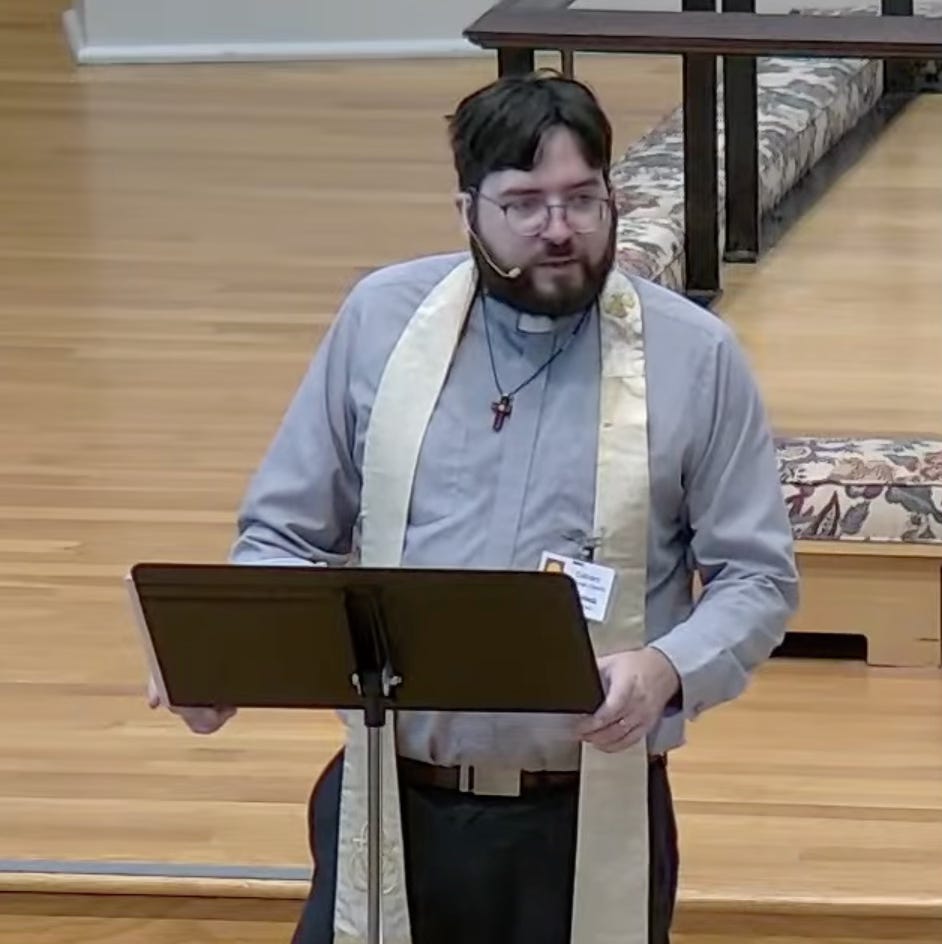
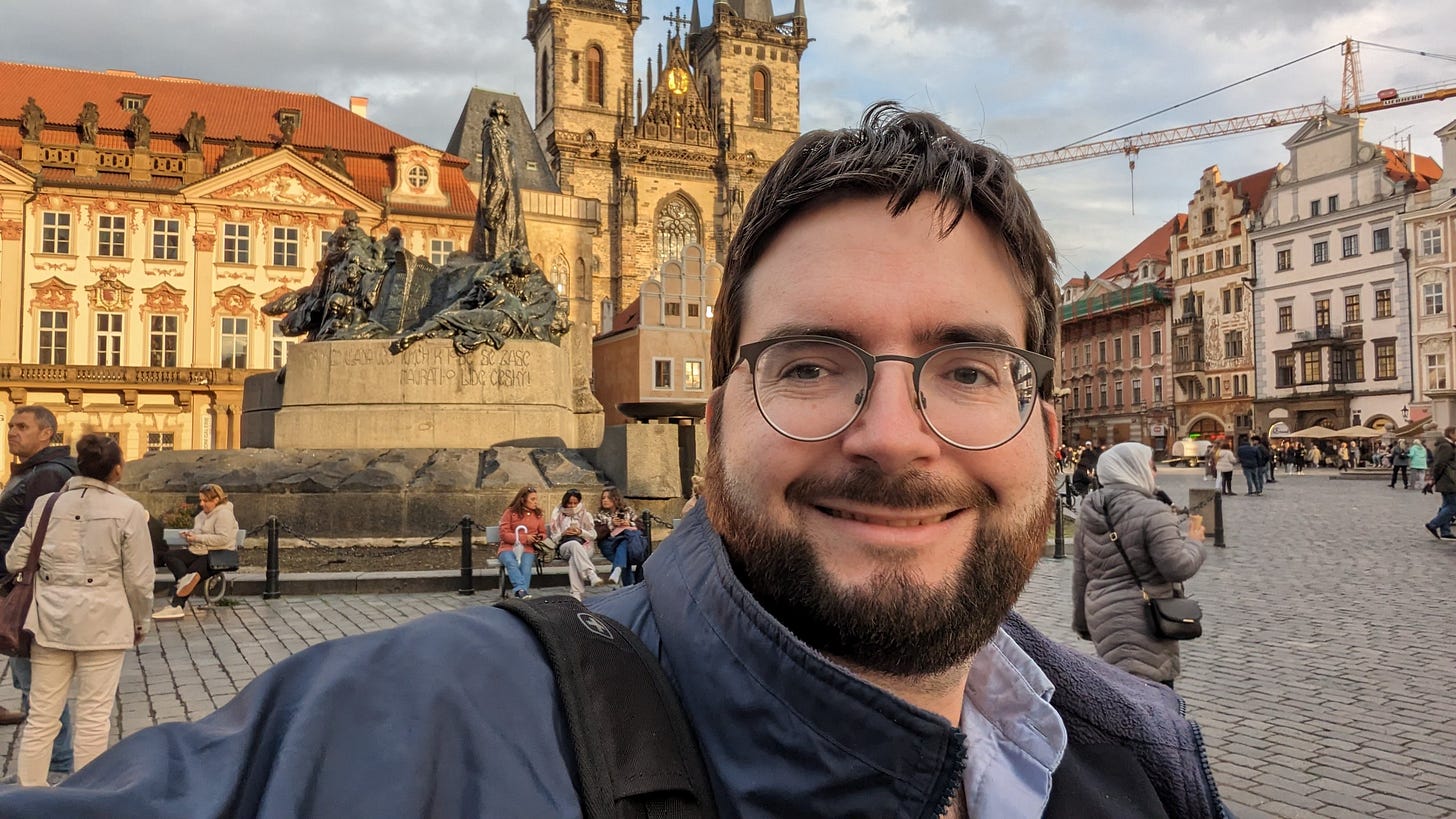
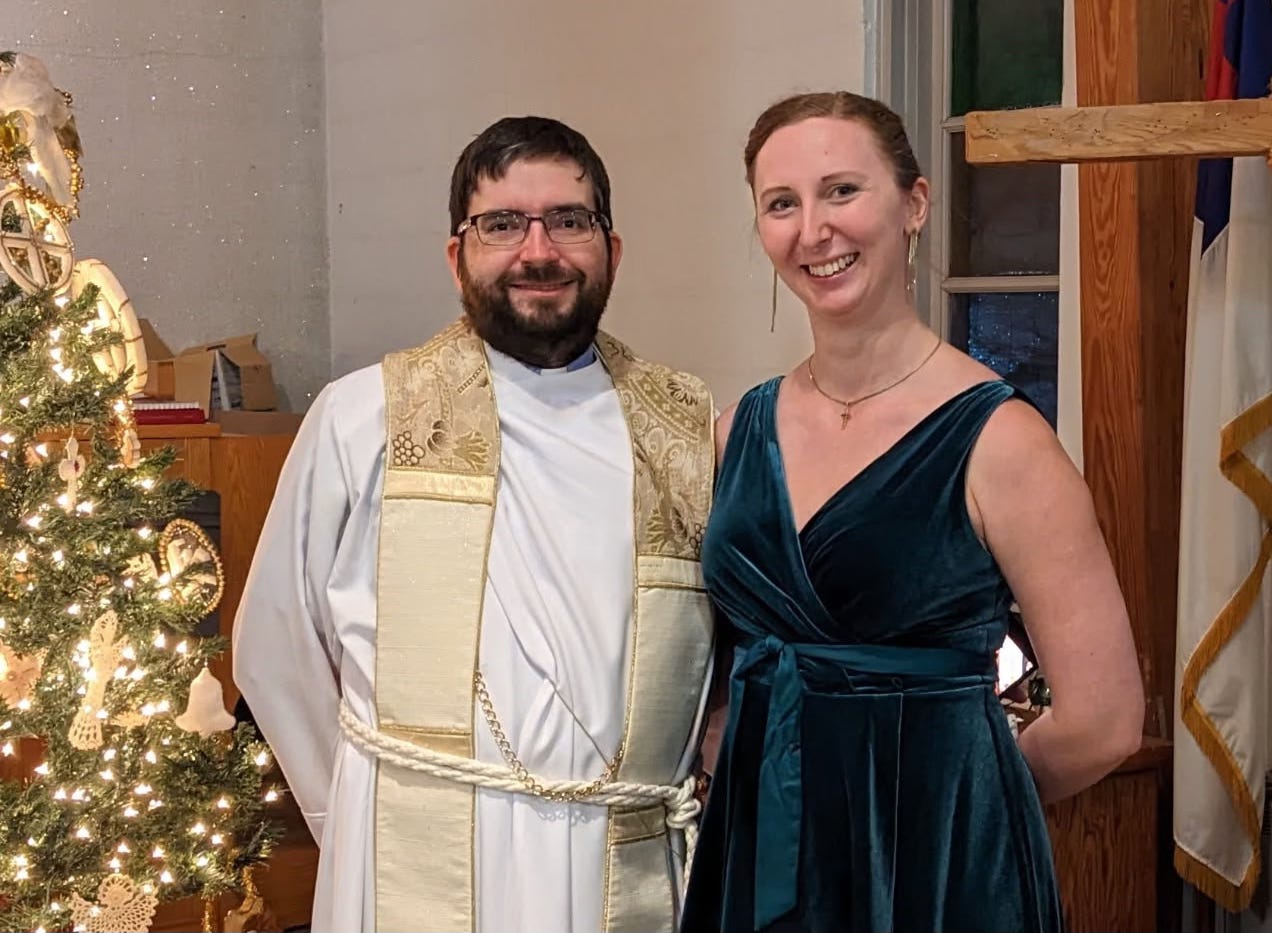
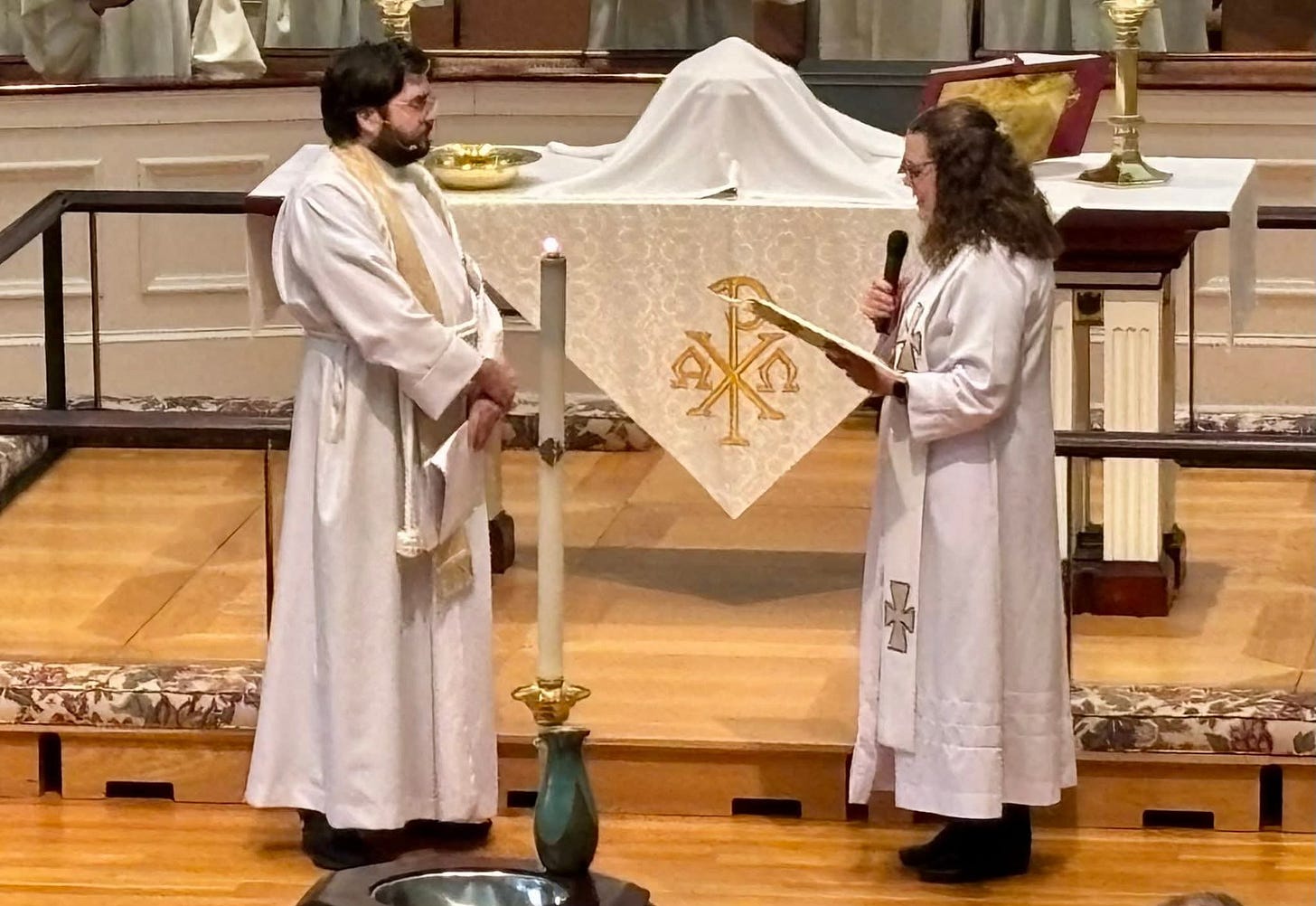
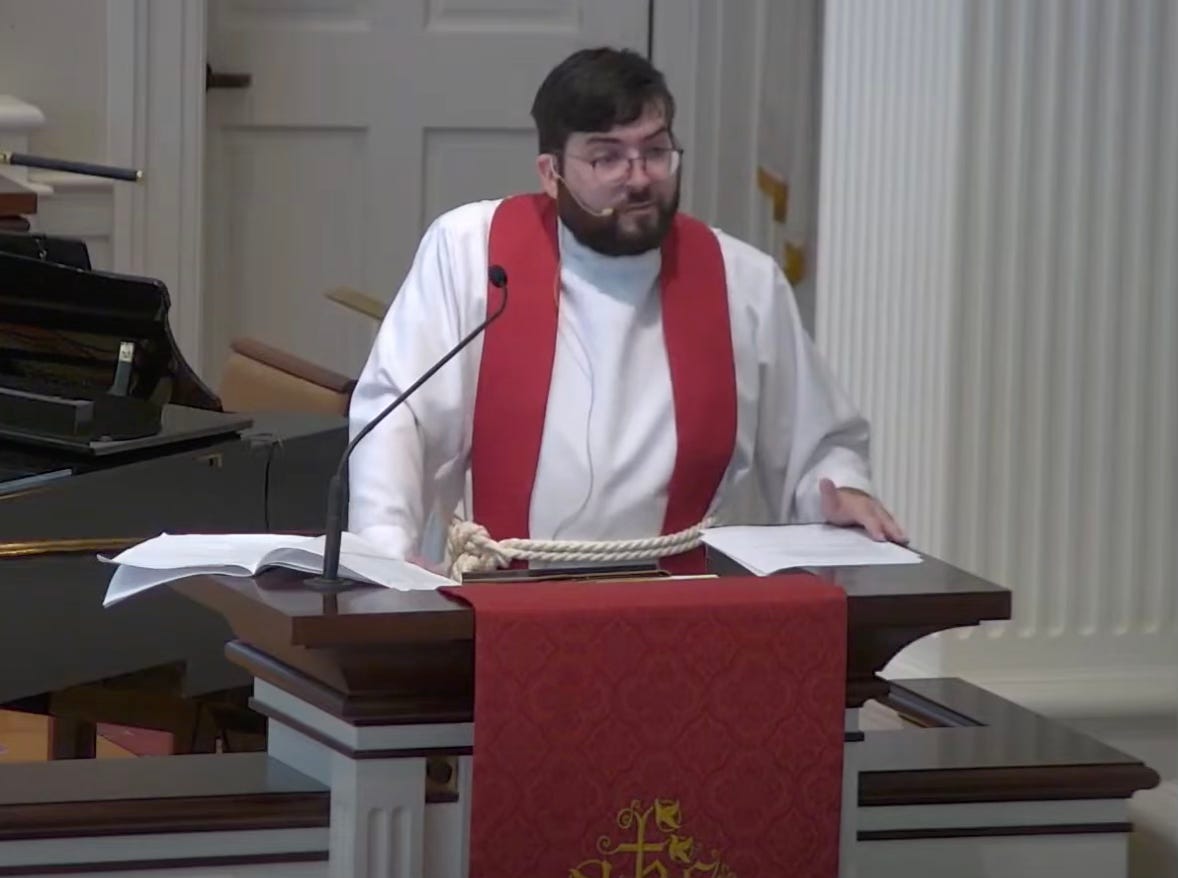
Welcome Pastor František! Oh how I hope to have a progressive Lutheran church in Cabarrus county one day! It’s a long drive to Charlotte
Come join us! Our 8:30 am Casual service features contemporary Lutheran liturgy with an eclectic music mix led by a 4-piece ensemble — a “Lutheran jazz brunch” vibe. The 11:00 am Traditional service has the liturgy and music cherished by life-long Lutherans — choir, hymns, anthem, organ. You will be welcome!